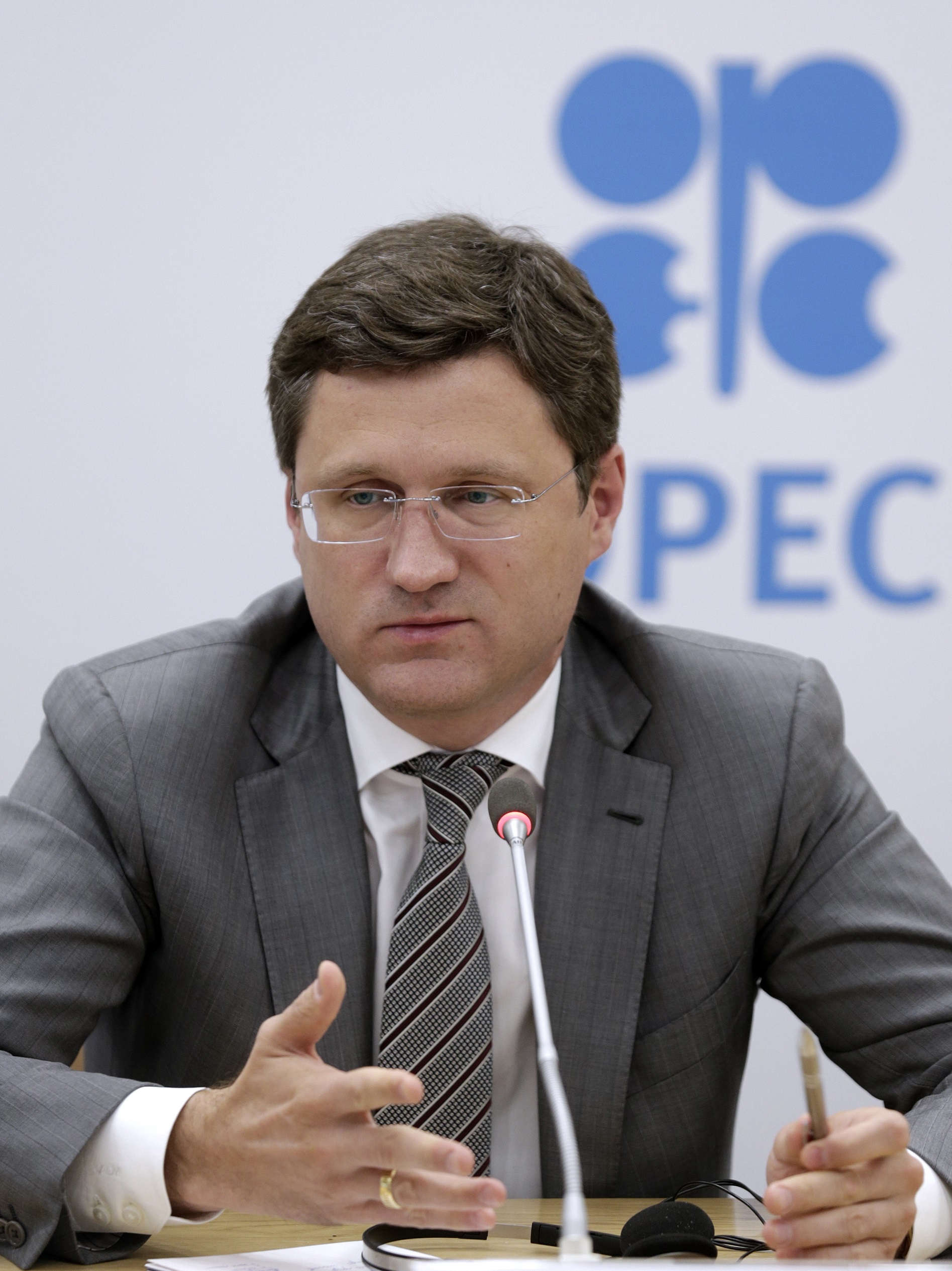ID :
398415
Fri, 02/26/2016 - 09:52
Auther :
Shortlink :
https://oananews.org//node/398415
The shortlink copeid
Iran’s participation in stabilization of oil production is still under discussion - Russian Energy Minister Novak

MINSK, February 25. /TASS/. The participation of Iran in the stabilization of oil production requires an individual approach and is still under discussion, Russian Energy Minister Alexander Novak told journalists on Thursday, adding Russian-Iranian joint projects in the energy sector are planned for the discussion in March in Iran.
"The topic if Iran’s participation is still in the stage of discussion and negotiations. It involves those countries that went to Iran. I think that there may be different options for Iran. We hear that they are not willing to actually reduce, to freeze the volume of production, given that the base is fairly low in comparison with other producers. That is why an individual and objective assessment is necessary," he said.
Novak said that he is going to visit Iran not to discuss this subject, but the development of trade and economic cooperation, as co-chairman of the Russian-Iranian intergovernmental commission. "We will hold an intergovernmental commission in Tehran, though not in March, a bit later. In March, at the meeting of co-chairmen we plan to discuss the current situation with the implementation of our joint projects. Perhaps we will meet with Iran’s Oil Minister Bijan Namdar Zanganeh. We have a large list of energy-related issues, as well as oil and gas industry," Novak said.
The Energy Minister did not rule out that the conditions of Iran’s participation in the stabilization of oil production would also be discussed at a meeting of OPEC ministers and non-member countries in mid-March.
Currently, negotiations on the possibility of freezing oil production by the leading oil-exporting countries of raw materials is in progress. Thus, on February 16, the talks between Russian Energy Minister Alexander Novak and representatives of the Organization of the Petroleum Exporting Countries (OPEC) member-states in Doha (Qatar capital) resulted in an agreement to freeze oil production at the level as of January 11. Oil and energy ministers of the Russian Federation, Saudi Arabia, Qatar and Venezuela attended the meeting.
Iranian Oil Minister Bijan Zanganeh said earlier, that Iran would support any initiative to improve the situation with oil prices. He said Wednesday after the talks with Venezuelan Minister of Petroleum and Mining Eulogio Del Pino, Iraqi Oil Minister Adel Abdel Mahdi and Qatar's Energy Minister Mohammed bin Saleh al-Sada on freezing oil production.
"Iran will support any steps aimed at improving the situation in the crude oil market and increasing oil prices," Shana quoted the Minister. "We welcome the cooperation, both with the OPEC countries, as well as with non-member states. The proposal made yesterday in Doha for OPEC members and other countries to freeze oil production was made to stabilize the market and to improve the situation with oil prices in the interests not only of consumers but also producers of hydrocarbons," he said.
At the same time, the Iranian Minister said that the impact of the Doha decisions on pricing mechanism could be assessed only after some time.
Iran - special conditions and background
It is expected that Iran will be offered special conditions on oil production because the sanctions against Iranian oil exports and payments for it were lifted on January 16. Iran insists on rebuilding its pre-sanctions market share.
In 2011, Iran produced 3.6 mln barrels of oil per day and ranked the second in terms of production in OPEC with daily exports of 2.5 mln barrels. After the sanctions were introduced in 2012, production fell to 2.7 mln barrels per day, the lowest level in the last 25 years. In 2015, the country was producing an average of 2.8 mln barrels daily. Its export quota in OPEC in the years of sanctions did not exceed 1 mln barrels per day. According to Iran’s First Vice President Eshaq Jahangiri, Iranian oil exports increased after the lifting of sanctions from 1 mln barrels per day in January to the current 1.3 mln barrels per day, and will amount to 1.5 mln barrels in March.
Read more





